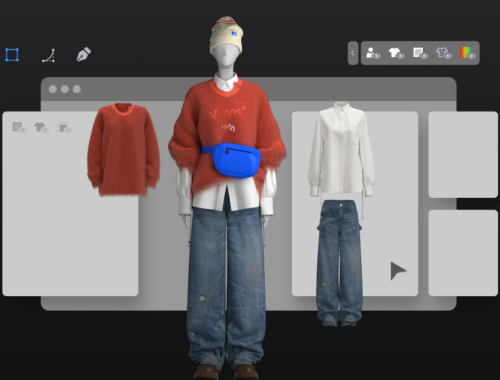‘Work Culture’ Is Code For White And Western. So Where Do People Like Me Fit?
I remember sitting on the couch at night, scrolling through job postings and LinkedIn profiles. I felt overwhelmed and disillusioned at the thought of being another unemployed or underemployed PhD graduate, but not for want of job openings.
Reading through job descriptions, I would often see diversity statements expressing an employer’s commitment to equitable and inclusive hiring practices. Yet, I didn’t see racialized names like mine in their employee directories. Their purported mission failed to materialize in the sea of white faces I saw as I walked through their offices.
As I searched for work, I did so with the understanding that my starting a PhD program would do little to insulate me from hiring practices designed to exclude racialized people. Few jobs outside of academia require a PhD, and people of colour are underrepresented in higher education and across different industries.
From the beginning, my status as a PhD candidate drew negative attention from hiring managers who would say things like: “I’m sure you’d rather sit around all day theorizing.” “This job is pretty routine.” “Won’t you find it boring?” Their questions struck me as odd, especially since they had known about the PhD from my resume.
I wondered if white candidates, who represent 76 per cent of PhD holders and 84 per cent of faculty hires, had to justify their pursuit of an advanced degree. I thought my PhD would make me a well-rounded applicant with practical work experience, and strong communication and critical thinking skills. Nevertheless, I was passed over repeatedly for less-qualified applicants who I was told were a “better fit” for the position or the organization.
Were these hiring managers concerned about my boredom, or whether I could fit in to their “work culture” — the coded language of professionalism which privileges white and Western values? My guess is the latter.
The lack of racialized people in leadership positions and the persistence of employee referrals almost guarantee that a predominantly white workforce will continue to recruit people who look and think like them. Such practices come at the expense of racialized candidates who are denied opportunities, despite having the same or higher credentials as white candidates. Applicants with white-sounding names are 39 per cent more likely to be invited for an interview than those with Indian, Pakistani or Chinese names.
I managed to land a full-time job in research grant development. My elation turned to dread after six weeks when my new boss reprimanded me about our office’s scent-free policy. She said that a co-worker had complained about me “wearing a lot of scent.” My face felt red hot. All I could muster up was “I don’t wear perfume. It must be my lotion?”
“It’s an easy fix,” she said, getting up to leave.
I closed the door, called my mum and cried. I thought about going home to have a shower.
This may sound like an overreaction, but it’s hard to overlook being told that your presence causes discomfort when you’re the only Brown person surrounded by white or white-passing co-workers. Professional standards like that scent-free policy can perpetuate white supremacy in workplaces. Urgency, paternalism, the “right to comfort” — some of the white-centring attitudes at the heart of Western office culture — are weaponized daily against people of colour.
As a result, I often find myself accommodating white people’s comfort. I smile at racial microaggressions, such as when a faculty member assumed I was the receptionist though I was introduced as “Dr. Maharaj.” Or how a recent colleague would always leave an empty seat between us at meetings, look down when I was speaking, and make eye contact with everyone but me.
White fragility calls upon me to not be offended when Brown colleagues are referred to as “lazy,” and Black colleagues as “difficult to work with,” and your boss laments the lack of diversity in the office (“But that isn’t why we hired you”).
I wonder if my former colleagues think this kind of behaviour is well-intentioned, or at the very least benign. It might offend them to hear otherwise, but their words and actions are loaded with hurtful sentiments that have harmed my self-image and self-worth.
Never ‘belonging’
Not just at work, people of colour and Black people, in particular, carry an unequal burden of having to prove their identity and justify their presence in traditionally white spaces regardless of credentials, status or education.
As a third-time graduate of the University of British Columbia, I was disheartened by the incident involving master’s student Savoy Williams, who experienced alleged racial profiling by campus security. Williams was denied access to his supervisor’s office despite having written permission and a valid student ID. Sadly, his experience is not uncommon.
In 2018, a white student called the police on Lolade Siyonbola, a Yale graduate student, for napping in the common room of her dorm. Police wanted to verify that Siyonbola belonged there. In Toronto, lawyer Selwyn Pieters was refused entry to his law society’s headquarters by a security guard who readily buzzed in white visitors without asking for ID. More recently, a Miami doctor, Armen Henderson, was handcuffed in his front yard while loading his van with supplies for homeless residents.
Watch: Black Yale student Lolade Siyonbola is interrogated by police for napping in common room. Story continues below.
In undergrad, I was accused by a white professor of accessing an office without permission, cheating on a final exam, and rifling through personal belongings when I was simply leaving a note.
Our schools and workplaces provide the means to perpetuate racism inasmuch as they can act as bastions of equality. Education, the “great equalizer,” is no match for institutions safeguarding white spaces through hiring discrimination and racial profiling. Public commitments to inclusion and diversity are meaningless without acknowledging how individuals and organizations participate in systemic racism. Racism lives and thrives in the actions of people and how they treat others.
While I’m aware of the privilege that comes with an advanced degree, I worry that employers will use it to conceal their racial biases. I worry that my colleagues will overlook my humanity and see me as difficult and aggressive. I worry that people moved to anti-racism by police brutality will remain wilfully ignorant of the subtle and not-so-subtle harms they inflict on racialized people.
I worry that I have been complicit by internalizing white supremacy and performing whiteness to succeed in a professional world. And I regret that I have made it harder for racialized people to be their full, true selves.
Click Here: camiseta rosario central
Have a personal story you’d like to share on HuffPost Canada? You can find more information here on how to pitch and contact us.
RELATED
- We Really Need To Talk About WE's White-Saviour Problem
- It's Time South Asians Confront Our Entitlement To Black Culture
- 8 Ways You Can Practice Self-Care In The Face Of Daily Racism
You May Also Like

**AI in Fashion: Revolutionizing Design, Shopping, and Sustainability**
February 28, 2025
Wind Speed Measurement Instrument: An Essential Tool for Accurate Weather Monitoring
March 19, 2025